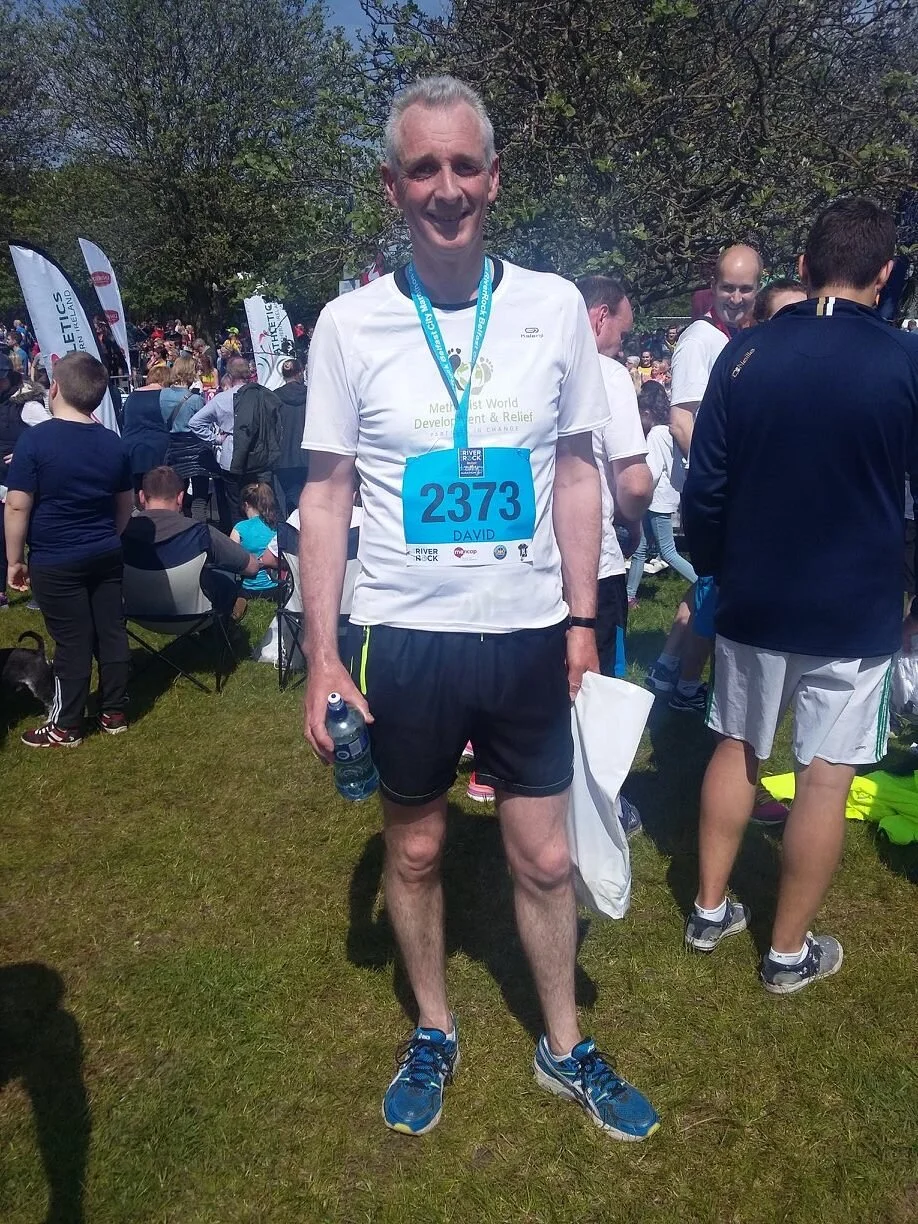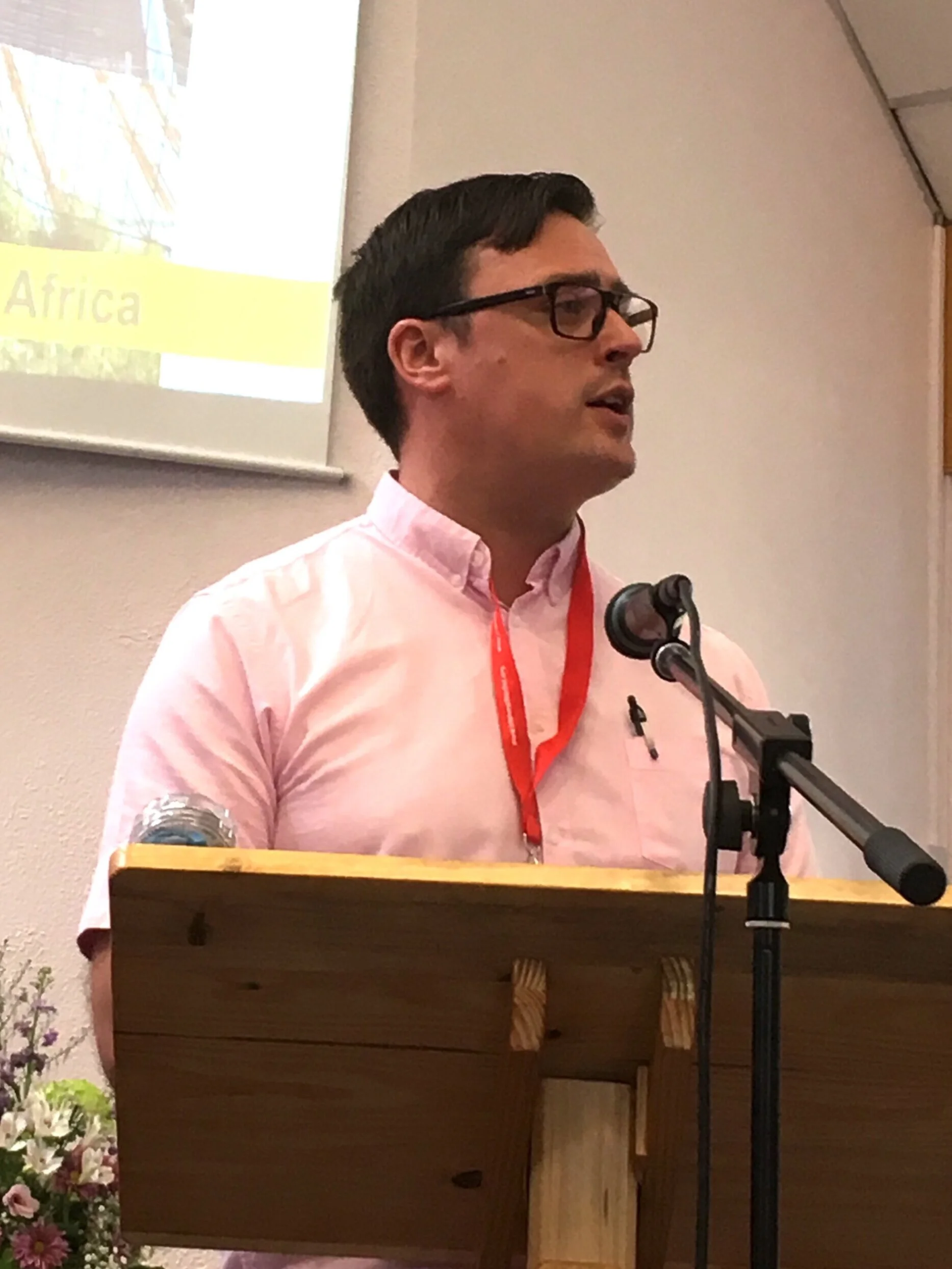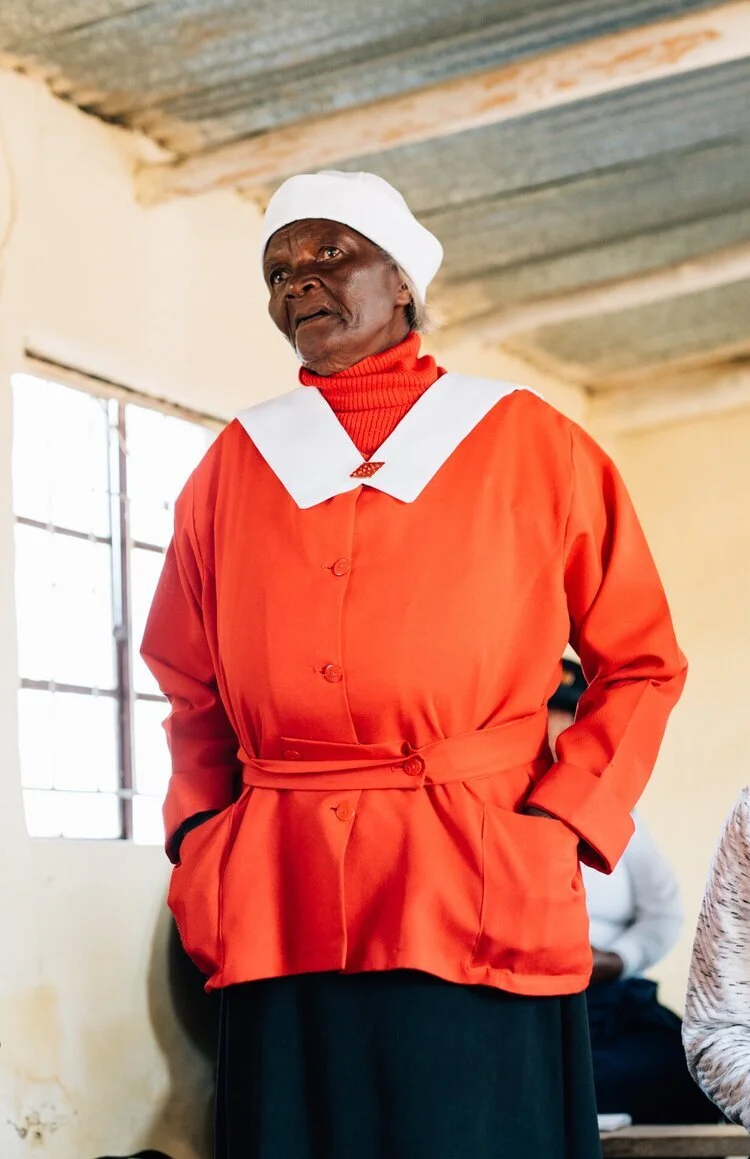A Change at WDR
As Rev Paul Maxwell prepares to step into Rev David Nixon’s shoes, as Convener of MCI’s World Development & Relief (WDR) committee, WDR Officer Tim Dunwoody put some questions to both men.
David ran the Belfast City Marathon to raise funds for WDR partners
DAVID, IF I MAY START WITH YOU. MANY PEOPLE TRY TO AVOID COMMITTEES, WHY DID YOU AGREE TO TAKE ON THE WDR CONVENOR ROLE IN 2013?
As a mission partner in Zambia for 13 years, I experienced the vital needs of others and the huge difference a little help could make in their lives.
Whilst there, we were privileged to be the conduit for support from many sources: parents could pay their children’s school fees, young people learned new skills, adults repaired their little houses and orphans received food and clothing.
I saw WDR as a wonderful way to bring transformation to those who need it.
AND WHAT CHANGES HAVE YOU SEEN IN HOW WDR DOES THINGS IN YOUR YEARS?
We transitioned from simply giving grants to a multitude of organisations to building genuine relationships with fewer partners. These long-term relationships enabled us to grow in trust and transparency in both directions and also help with monitoring and evaluation. We in the Methodist Church in Ireland can now get to know the people on a personal level, understand their situation and issues better and see real long-term positive impact. True relationships have also allowed us to gather and share wonderful and also challenging stories through video and photographs. Our partners know that we walk with them on their journey, through the good and bad times, their joys and struggles, their victories and failures.
PAUL, YOU’VE BEEN A MEMBER OF THE COMMITTEE FOR ONE YEAR AT THIS POINT. HOW DO YOU PERCEIVE WDR WITHIN THE LIFE AND WITNESS OF MCI?
It always amazes me how, in many areas, the Methodist Church in Ireland punches above its weight. I have realised that this is particularly true for the work of WDR. As a Methodist, I am immensely proud of the fact that we have a department that tackles poverty and injustice in communities around the world. As a church, we should be immensely proud of the impact we are having.
AND PAUL, DO YOU SEE SIMILARITIES BETWEEN THE WORK OF WDR’S PARTNERS AND THAT OF IRISH CHURCHES YOU’VE BEEN INVOLVED WITH?
Paul addressing MCI Conference during WDR report
On the surface, there may not seem to be great similarities between Dabane focusing water access, Church Land Programme tackling land rights and Kopila-Nepal empowering women. However, we can learn much about life and mission from our partners. At the heart of all our partner’s work is the desire to see people playing their part in transforming their communities for the betterment of all. As a Methodist minister in Ireland, this is exactly what I am about and this is what we as churches should be seeking to do. As MCI’s new tagline says “Living wholeheartedly as followers of Jesus, for the transformation of the world.”
DAVID, BACK TO YOU. WHAT HAVE BEEN YOUR PERSONAL HIGHLIGHTS AND WHAT HAS BEEN MOST SATISFYING?
It has been wonderful to see the enthusiasm of the WDR committee members, the interest and support for WDR at Conference and in the congregations. Giving has increased through monthly standing orders and the annual 1% Appeal. As a Connexion, we have benefitted from the enthusiasm, commitment and creativity of Laura and yourself as you’ve helped us get to know our partners through social media, the website, MailChimp newsletter, Prayers of Solidarity and the annual service material. It is so satisfying then to meet and encourage, and indeed be encouraged by, partners and beneficiaries involved on the ground.
I feel enormously privileged to have met so many gifted and wonderful people in our partner organisations. People who work hard and know that they can make huge differences in the lives of others if they can just get some support. For example, it was wonderful to be with Rev. Joseph Donkoh in Ghana and meet the farmers in the villages. Joseph was so passionate about the acacia and leucenia trees, and the way they provide fodder for goats and wood for charcoal production.
Edna Ndawonde at Roosboom
One of the many moving experiences was sitting in a church in Roosboom, South Africa, listening to the members of the Methodist church explaining how they had been forcibly removed from their homes during apartheid, had their homes and churches flattened, been moved to poorer land and then how, years later, they were allowed to return. With the help of our partner, Church Land Programme (CLP), they eventually forced the government to keep their promise and rebuild their church. It was hard to imagine the pain of the injustice and wonderful to see how important it was for them to have their church back again. As CLP said at the time, it was not simply about putting up buildings but about building community. It’s hard to explain the feelings of shame, sadness, anger and admiration that all of us felt in that meeting and when we met others for whom a title deed for their little corrugated iron home was the greatest gift they could receive. The injustices people suffer make you so angry.
PAUL, WHAT DO YOU SEE YOUR ROLE WITH WDR AS BEING?
Well, apart from representing WDR and chairing meetings, an important aspect of my role will be to work alongside yourselves in the office in promoting the work of WDR's partners here in Ireland. I’ll become an even bigger advocate, sharing stories and promoting good development. I will be more than happy to come to services and groups and share my passion for connecting aspects of global and local mission.
AND PAUL, YOUR HOPES?
COVID-19 has brought much change to the way we do things and the way we think. It has the potential to make us more insular in our thinking and practices. It is my hope and prayer that MCI will continue to see its engagement with global poverty and injustice as one of its chief aims. In WDR we speak a lot about partnership. Partnership is a two-way process. As we continue to adapt and learn to live with the changes COVID has brought, I hope that we, as Irish Methodists, will continue to learn from our partners around the world, be inspired by the ingenious ways they have adapted and be challenged and encouraged as to how we can engage with the communities in which we live, work and minister.
DAVID, ANY FINAL WORDS?
I’m just so grateful to God for allowing me to be part of this great story and allowing me to be in awe of so many of his amazing people in the world who are committed to doing his work, helping their neighbours reach their potential and move up out of poverty. It is a privilege for us in The Methodist Church in Ireland to be connected with such sisters and brothers and be united in our zeal for justice.
David, on behalf of myself and Laura, the WDR Committee and, indeed, the Methodist Church in Ireland, may I thank you for enabling WDR to evolve and become so effective over your eight years at the helm. And Paul, thank you for taking up the baton. We look forward to what your compassion and vision will bring to MCI’s global mission amongst the world’s marginalised.



